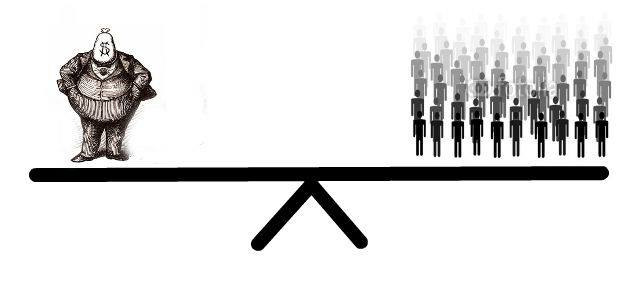December 6, 2017

Voqal recently embarked on a follow-on research effort to understand more deeply the shifting dynamics of the money-in-politics (MiP) field and identify the best role for Voqal going forward. This week, as part of our ongoing series about our strategic philanthropic investments to get money out of politics, we focus on the second theme from this research — the need for reform strategies and policies to place those most affected by harmful policies at the center of the work.
Theme 2: Campaign strategies and policy solutions should center on those most affected by the dominance of big money and special interests.
According to most of the key informants interviewed, the culture of the progressive movement and the Money in Politics (MiP) field, continues to be dominated by white-led organizations. Following the success of small donor campaigns in Seattle, Berkeley and Maryland’s Montgomery and Howard counties, there is a growing sense of urgency and desire to create coalitions that reflect the values of diversity and grassroots mobilization that progressives hold dear, not just for a short-term win but in ways that build power for the long term.
Instead of looking at MiP from the top down in terms of who has the power and how it can be limited, one informant suggests the field could “think about it from the bottom up – who are the folks who don’t have as much power and how can we increase their power and their agency and their voice in our democracy.” Voqal is already practicing this theory of change by supporting local, grassroots, coalition-led campaign efforts designed to create structural reforms to strengthen democracy and level the playing field for low-income Americans and people of color. Limiting campaign spending and providing ways for small donors to have an impact is making a difference at the local level that people can see and relate to.
Another key informant proposed that funders convene the leading state-based organizations that are led by people of color, or working in or representing communities of color, to talk about how to change the structural and implicit biases that are deeply ingrained in progressive culture. “It feels to me like the money automatically goes to organizations that are white and have historically worked on this issue. Then the money flows through there, potentially reaches some groups that work in communities of color, but if they’re lucky it’s a small grant to talk to people. It’s not about [the work] being centered there. So what if the money flowed differently and went to the community of color group and the community of color group said, ‘we’ll give you a small grant to advise us about what your area of expertise is,’ instead of the other way around.”
Yet, it is not just where the money goes, but how. Several key informants noted that typical campaign funding cycles serve to undermine capacity, infrastructure and movement building. “If you want to engage organizations who work with and are led by people of color who most often do not have the same staff capacity as mainstream organizations, it takes a longer period of time and it takes a level of intention.” Some expressed frustration, victories notwithstanding, at the uneven capacity at the grassroots and noted that truly transformative and lasting change may also require funds and opportunities for leadership development, planning and technical assistance to bring skills and quality of work up to a standard so that groups can participate and contribute in equal measure to others in coalition. Historically, many grassroots organizations have operated at the margins and, as such, they may arrive at the table with a deficit in talent and resources.
Interested in learning more about Voqal’s work to reduce the influence of money in politics? Download the Taking Money Out of Politics: A Weighty Lift and Balancing the Scales: The Fight for Our Democracy reports.